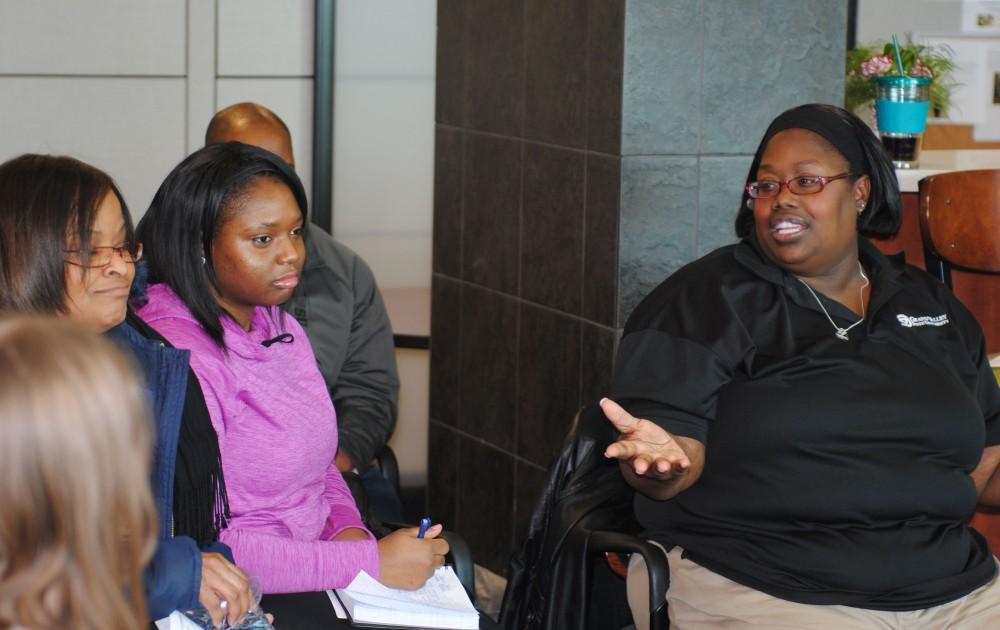GV discusses women’s role in Black Lives Matter movement

GVL/Brianna Olson Takeelia Garrett
Feb 12, 2015
The Grand Valley State University Women’s Center hosted a discussion on Tuesday regarding the role and representation of African American women in the Black Lives Matter movement.
The discussion was part of the center’s monthly “Talk Back Tuesday” event, where the GVSU community is encouraged to talk about pressing issues regarding women in the community and throughout the country.
Takeelia Garrett-Lynn, assistant director of housing and residence life and a member of Positive Black Women, led the discussion.
Garrett-Lynn highlighted how important it is for students to know about the Black Lives Matter social movement, which is meant to raise awareness about the death of black teens throughout the country. However, the discussion focused on the role of black women in the movement.
V’Lecea Hunter, graduate assistant at GVSU, said an important issue is how black women are raised – she described it as “babies raising babies,” or young black mothers trying to take care of their infant child.
Young mothers base their lives off of the lavish lifestyles they see on television – if black women are rich, mothers will try to act in a similar fashion and hope it helps them become rich.
“(Young black mothers) are not understanding who they are as a person, not learning to love themselves for who they are,” Hunter said. “But where would they learn that?”
Hunter said women have to surround themselves with the right people in order to find the right lifestyle.
North C Living Center Director Jazmine Williams said society does not have any support mechanisms for when people make mistakes. Teen mothers do not receive much help, forcing them to decide if they want to go to school or work. She said mothers can sign up for welfare, but this is not enough for most cases.
“A lot of people have this idea that welfare is like a vacation,” Williams said. “If you really feel that way, quit your job and sign up for welfare, and see if you really enjoy that.”
The group also discussed the stereotype of the “strong black woman.”
Garrett-Lynn said this stereotype portrays black women as a “sassy, street-smart woman.” Television often portrays black women in this light, which causes the general population to expect this stereotype, Garett-Lynn said.
This stereotype causes trouble in the workplace. She said black women might have to work twice as hard to reach the same level as their white counterparts.
“No matter how well you do in school, that doesn’t matter,” Williams said. “Because the first thing that people see when they see you is a black woman.”
Tiesha Anderson, a GVSU student, said it is important to keep in mind how black teens are treated in school. Anderson said some African-Americans are being told they cannot look a certain way in school. Her cousin moved to a new neighborhood in order to gain better opportunities, but he had to change his lifestyle.
“The school told (Anderson’s cousin) that before he could enroll, that he had to cut off his afro,” Anderson said.
Anderson added that it is important to keep social media channels open. She said the community is at a point where everyone wants to share their stories, and that is a way to learn from each other and find solutions.

























